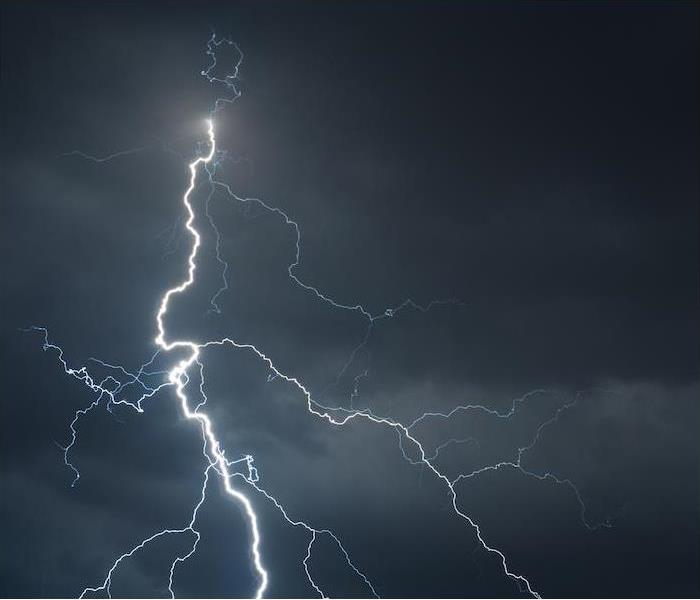Take Precautions Against Summer Storms | SERVPRO® of Northwest Bergen
8/20/2021 (Permalink)
 If storms cause damage to your home or business, SERVPRO of Northwest Bergen is available 24/7, ready to make things right.
If storms cause damage to your home or business, SERVPRO of Northwest Bergen is available 24/7, ready to make things right.
Summer in Mahwah or Ho-Ho-Kus probably means you’ve got lots of plans. Longer days full of sunshine call you outdoors to soak it all up while you can—maybe you’re headed into the city to root for the Bronx bombers, or maybe you’ve got plans to cool off at a local splash pad. But wherever you go, even in the sunniest time of the year, make sure you pack an umbrella.
Despite all the sunny weather (or truthfully because of it), Bergen County summers are actually more prone to produce thunderstorms than other seasons. July, for example, while not our rainiest month in terms of days, brings more precipitation than any other month, as summer warmth combines with atmospheric humidity to create afternoon and evening thunderstorms.
Be Storm-Alert
Storms can drop in with little notice during these months. If your local weatherperson issues an alert, or your weather app shows a storm icon, it’s time to get ready. An NOAA Weather radio on hand can be a handy asset as well, because it can keep you informed and focused, even if a storm knocks out your power.
If flooding is predicted, change your plans and stay indoors. You may need to take stock of the backyard as well, and move or tie down certain items that might blow over or wash away in a heavy storm.
Settling in for a storm doesn’t exactly thrill the heart as much as watching Aaron Judge thump baseballs, but it can be the difference maker in an emergency. A little extra caution or preparation could prevent many of the storm-related deaths each year.
Be Storm-Safe
Once the storm arrives, stay inside and safe. It’s dangerous outdoors until you’re 30 minutes past the last thunderclap.
Lightning can create problems indoors, too—showering, bathing, or standing near windows are all no-nos until the storm passes.
Hopefully, you’ve already got a stocked emergency kit, but now is the time to make sure it’s current. A mobile kit in the car can be a huge help as well if a surprise storm causes a need for evacuation.
If flooding does occur, stay out of the water at all costs, Aside from being physically dangerous, it’s also full of contaminants that can cause health effects.
After any water damage situation, your primary focus should be safety first:
- Is it safe to stay in the house?
- Electrical and "slip and fall" hazards are some of the most prevalent concerns.
- Only do activities that are safe for you to perform.
- Wet materials can be VERY heavy. Be careful!
There are any number of dangers that can come into play in a thunderstorm, and it’s always best to be cautious and put things on hold until storms safely pass.
If storms cause damage to your home or business, SERVPRO is on the line, ready to make things right again.




 24/7 Emergency Service
24/7 Emergency Service